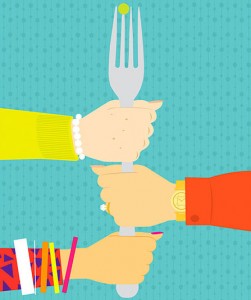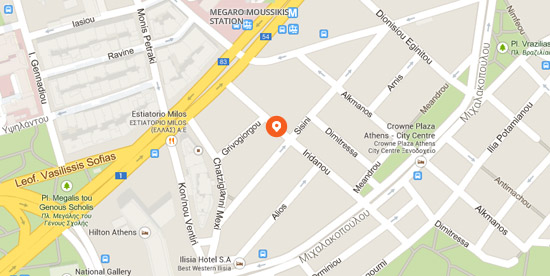7 nutrition myths
Express diets
It is not uncommon to come across diets that promise speedy weight loss. It can be very tempting to follow them and indeed many people do. In fact you might shed a few pounds quickly. The truth of the matter is though that such dietetic regimes can do more harm than good. The sudden weight loss in these cases usually results from a dramatic reduction in quantity or exclusion of specific foods as well. Such a reduction however is unsustainable. Hungrier than ever one returns to their previous eating pattern, usually gaining more weight than they lost. Moreover the nutritional quality of such programs is poor. There is a certain amount of weight one can lose per week and it shouldn’t be exceeded. A balanced diet with high nutritional quality is healthier, will get you there in time but will also help you stay lighter longer.
Fats will make you fat
A common motif with these myths is true above a certain quantity, not true below that. That is the case with fats as well. It would be unwise to exclude them from your diet completely. Nevertheless you should avoid saturated fats, which are associated with cardiovascular problems. Also low fat products may contain more sugars, hence be aware of the calories and check for the amounts of nutrients.
Vegetarianism is the answer
Vegetarian diets are quite popular nowadays and it’s true that they have been linked to lower body weight levels. However one should not think that vegetarian diets are not restricted by calories like all other diets are. For example chocolate can be part of a vegetarian diet but consuming it in large quantities will undermine the benefits that the latter is known for. Hence it is imperative that we make the right choices. In addition we should make sure that our diet provides the necessary quantity of all the nutrient that non-vegetarian diets do.
 To get thin I will only eat once a day
To get thin I will only eat once a day
There is a false idea that if we only eat once a day instead of say three meals we will lose weight. This notion fails to take into account our body’s needs for nutrients and energy. Eating once a day is bound to make you go through large portions of the day where you feel really hungry. It is very unlikely that this program will be sustainable in the long run. More to the point you run the risk of deregulating your blood sugar.
Never eat between the main meals
As we mentioned above it is no good eating once a day, and it is better to eat at least three meals. Eating between meals has a bad reputation and that is due to the idea that people will usually choose to eat high calories snacks. However we come back here at a previous notion about quantities. If one regulates the quantities, the calories and the nutritive content of all his meals as well as the times during the day that those take place, then five relatively small meals can be better than three.
Never eat after dinner
Especially those who eat dinner early may feel a bit hungry before they go to bed. It is not necessarily bad to indulge such a need. What would be bad is if one overconsumed. If you feel that you have to eat something, you could opt for a fruit.
Carbohydrate free diets
As mentioned above it is never a good idea to cut something off completely from your diet. Carbohydrates can be a part of balanced diet on the condition that we consume them sensibly. That is to be mindful of the calorie intake, and prefer whole rather than refined ones.








